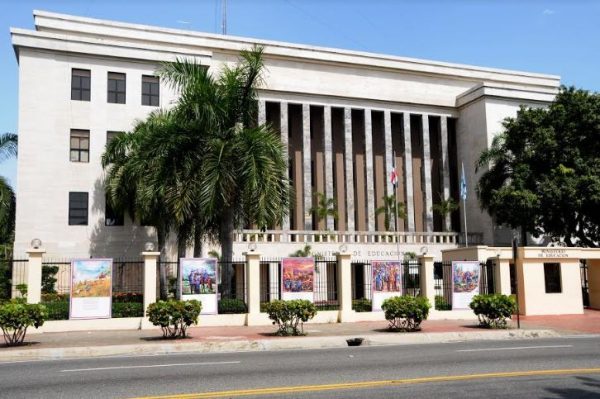
The Dominican Republic has little to show for the more than doubling of the public spending in public education since 2013.
The 4% of Gross Domestic Product now spent on public education has not translated into the expectations for major improvements in quality education nationwide. The 4% of GDP is a social conquest, achieved after months of protests that demanded the government comply with the legal requirement to allocate 4% of the National Budget to the Ministry of Education and make available more funds for public education.
The government began to allocate the 4% as of 2013 during the first government of former President Danilo Medina. Yet, after more than eight years, the Dominican Republic continues to report the highest level of insufficiency in learning in the Latin American region. Most of the funds were spent building public schools and raising the wages of the public school teachers and the bureaucracy that runs the educational system.
The country is still well below the regional average in learning.
This was established by the Regional Comparative and Explanatory Study (ERCE) 2019 published by the Latin American Laboratory for the Evaluation of the Quality of Education (LLECE), of the Regional Bureau of Education for Latin America and the Caribbean (Orealc/Unesco).
Unesco released the data on the Regional Comparative and Explanatory Study (ERCE) 2019 on Tuesday, 1 December 2021 with results on the assessments of third and sixth grade students from 16 countries in Latin America and the Caribbean. The tests assessed students in language, mathematics and science skills.
In the Dominican Republic, 4,900 students in 203 schools were assessed. The findings are representative of the level of 199,000 students in third grade and 158,000 in sixth grade.
According to the findings, the Dominican Republic presents improvements in all areas evaluated, both in third and sixth grade, with respect to the previous study, done in 2013, mainly in mathematics in third grade.
However, the results achieved continue to be below the average for the region and the country maintains a high proportion of students at the lowest level of performance.
The study, released by the Latin American Laboratory for the Evaluation of the Quality of Education (Llece), of the Regional Bureau of Education for Latin America and the Caribbean (Orealc/Unesco Santiago), specified that in third grade reading, Dominican students obtained 624 points, which is lower than the 697 of the regional average.
The executive director of Acción Empresarial por la Educación (Educa), a non-profit pro-education organization, Darwin Caraballo, is optimistic the very heavy education machine is just starting to move.
He pointed out that the study showed a doubling of the number of students in the IV level of high performance, from 2.2% to 4.4%, as reported in Diario Libre.
Caraballo affirmed that for the country to stop having the worst educational levels in the region, the capacity of teachers must be improved.
“The formula to reverse the situation is to hire better teachers to achieve better citizens, and those teachers are obtained through a competition,” said Caraballo.
Caraballo also indicates that the financial support for the educational system must be firm and sustained. Yet, he stresses that money is not a guarantee of quality in education.
In this sense, he stated that although there are good public schools in the country, the number of students who graduate from these is very low in proportion to the almost two million students who do not have access to these spaces.
Llece recommends that the country act to achieve a more equitable education and improve its educational plan.
2020 was practically a lost year for most students in public schools after schools closed in March 2020 and did not reopen until September 2021. The schools reopened when Vice President Raquel Peña overrode opposition from Education Minister Roberto Furcal who insisted on virtual learning until 5% positivity was obtained in each municipality. The Procurement Agency has disputed a major e-device tender carried out by the Ministry of Education on grounds it was overpriced.
Last week, 16 members of the 20 member oversight committee of the Ministry of Education teacher contest resigned for lack of compliance by the Ministry of Education authorities with the requirements of the contest. Educa was one of the resigning members. The contest is to hire 19,000 public school teachers. The Ministry of Education has been hiring “temporary” teachers in the meantime.
Read more:
Unesco
Unesco – LLECE
Hoy
Diario Libre
Unesco
3 December 2021

